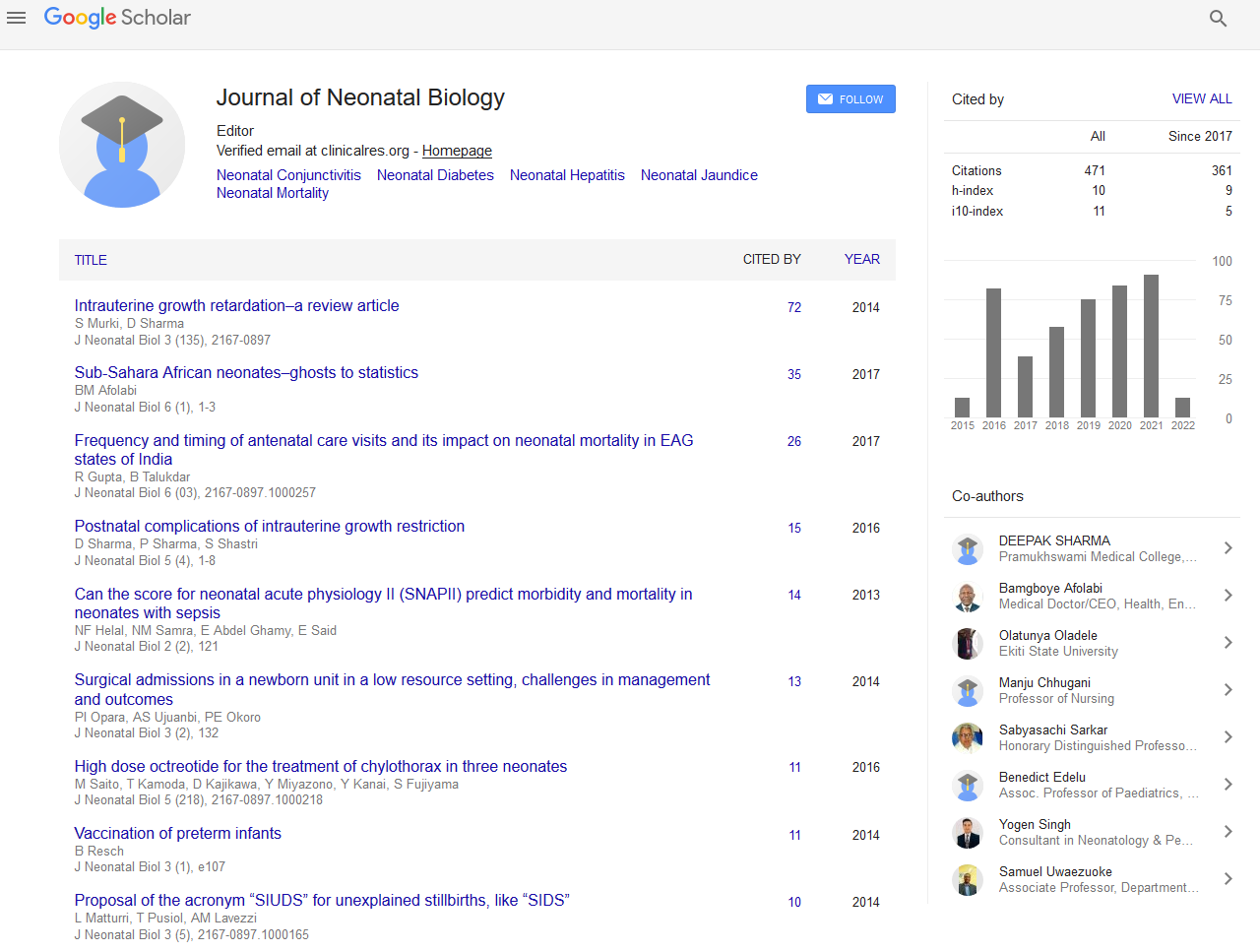PMC/PubMed Indexed Articles
Indexed In
- Genamics JournalSeek
- RefSeek
- Hamdard University
- EBSCO A-Z
- OCLC- WorldCat
- Publons
- Geneva Foundation for Medical Education and Research
- Euro Pub
- Google Scholar
Useful Links
Share This Page
Journal Flyer

Open Access Journals
- Agri and Aquaculture
- Biochemistry
- Bioinformatics & Systems Biology
- Business & Management
- Chemistry
- Clinical Sciences
- Engineering
- Food & Nutrition
- General Science
- Genetics & Molecular Biology
- Immunology & Microbiology
- Medical Sciences
- Neuroscience & Psychology
- Nursing & Health Care
- Pharmaceutical Sciences
Abstract
The Long-term Impacts of Birth Weight and Respiratory Complications after a Preterm Birth
Jennifer S Landry, Zofia Zysman-Colman, Suhair Bandeali, Dan Croitoru and Geneviève M Tremblay
Background: Infant respiratory distress syndrome (RDS) and bronchopulmonary dysplasia (BPD) remain important respiratory complications of preterm births. This study aims at establishing the incidence and impact of respiratory complications and extreme low birth weight (ELBW) on the healthcare utilization of a population of preterm infants.
Methods: Retrospective cohort study using administrative healthcare databases of the province of Quebec (Canada). The main outcome measures of healthcare utilization, hospital admissions, hospital mortality and use of prescription drugs were studied in 55 033 subjects born prematurely with or without respiratory complications such as BPD or RDS between 1999 and 2009.
Results: Preterm infants with BPD and RDS had significantly higher hospital readmissions per person-year. This trend persisted for the entire duration of the 10-year follow-up. Diagnoses of childhood asthma, attention deficit hyperactivity disorder and cerebral palsy were more frequent in BPD subjects, but were not influenced by birth weight. Extreme low birth weight carried odds ratio of 38.0 [33.5, 43.2] and 3.5 [3.2, 3.9] respectively for the occurrence of BPD and RDS, and was associated with greater mortality, longer hospital stay and more medical visits per person-year. Except for anxiolytics and sedatives, bronchopulmonary dysplasia subjects were not more likely to have been prescribed neurological and psychiatric medications.
Conclusions: Birth weight is a major determinant in the occurrence of respiratory complications following a preterm birth. The impacts of BPD and extreme low birth weight following a preterm birth have lasting consequences on respiratory health and healthcare utilization.


